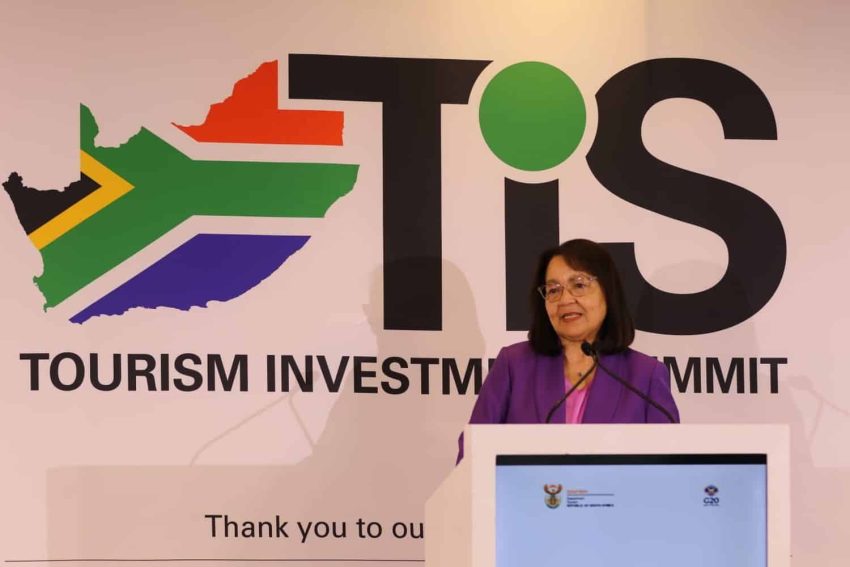‘With the right mix, we can build infrastructure, create jobs, and uplift communities, all at once.’
Tourism Minister Patricia de Lille says the private sector should take the lead in Public-Private Partnership (PPP) projects, rather than the public sector.
She was speaking at the Tourism Investment Summit in Cape Town on Wednesday.
The Tourism Investment Summit aims to further develop destination development projects by showcasing tender-ready investment opportunities. Key to the summit is a smooth working relationship between the private and public sectors.
ALSO READ: Public-private partnership: key to infrastructure transformation
How to make PPP work
The minister was asked what she believes is key to ensuring PPPs deliver the best results.
“For PPP to work smoothly, the private sector must lead the projects, while the public sector owns the projects,” said de Lille.
This year’s summit is the inaugural event and is expected to take place annually to attract investors and support projects in the country. The summit takes place days before the G20 Tourism Ministers’ Meeting, which is scheduled to take place in Mpumalanga.
The meeting will bring together tourism ministers to finalise the action plan that is poised to drive sustainable tourism development among G20 member countries.
Amended National Treasury Regulation 16 for PPP
De Lille highlighted that the Amended National Treasury Regulation 16 for PPP will allow partnerships to blend finance, including crowdfunding, in addition to the design-build-operate model.
“And while PPPs are one option, the amendments introduced by the treasury allow investors to provide us with innovative financing models.
“With the right mix, we can build infrastructure, create jobs, and uplift communities, all at once.”
Different global leaders, policymakers, investors, and industry stakeholders had the opportunity to hear presentations of eight flagship projects. These are projects from both the public and private sectors, and de Lille views them to have a ‘strong return on investment and high community impact.’
ALSO READ: Government-business partnership to accelerate delivery – BLSA
Eight investment-ready projects
“Our projects range in size, from the God’s Window Skywalk in Mpumalanga, which is seeking an investment of R200 million ($10.4 million), to the Hole in the Wall Resort in the Eastern Cape, requiring R141 million ($7.9 million). Together, all these projects reflect South Africa’s readiness to welcome investment that delivers not only strong returns, but real benefits to communities,” said De Lille.
The rest of the projects are:
- Western Cape Tokai Manor Table Mountain National Park
- Tshwane’s Eye of Menlyn
- Mpumalanga God’s Window Skywalk
- Eastern Cape Water World Fun Park in Buffalo City
- Orpen Kruger Lodge
- Western Cape Groote Schuur Estate Tea Room and Restaurant
- Eastern Cape Hole in the Wall Resort
- Skukuza Rest Camp, Kruger National Park
Challenges in SA
De Lille told The Citizen that poor service delivery, such as water challenges, does affect tourism levels, as no one wants to visit a city that lacks adequate service delivery.
“The challenges around service delivery do impact tourism in the country because we want our visitors to have an uninterrupted experience, so if there is no water or electricity, it does interfere with their stay.
“I mean, I was in Rosebank on Sunday, and there was no water. Hotels had to bring water tanks for guests.”
She highlighted that due to these challenges, the department invests in greening the tourism facilities. “We incentivise guesthouses and hotels to go green.”
NOW READ: Where are the private sector plans for Cape Town port?
